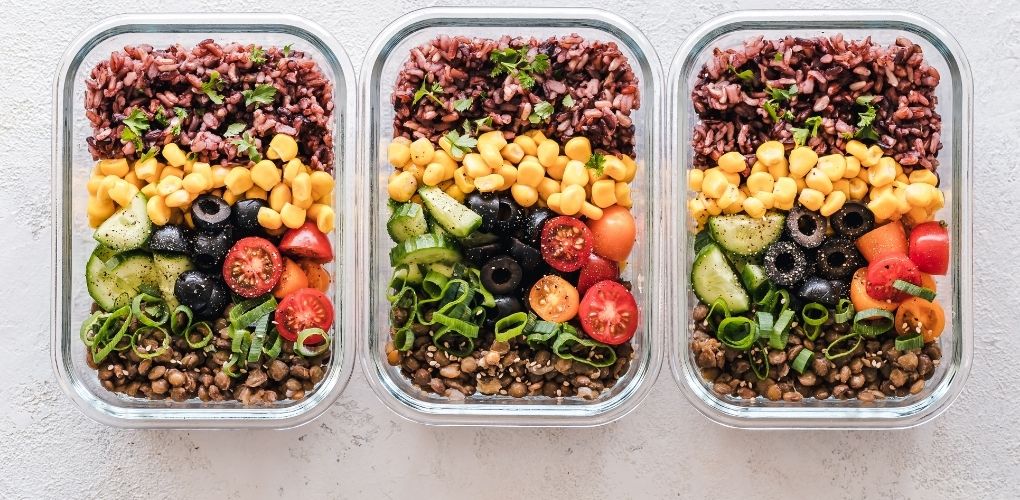
It is well known that sodium intake can lead to serious health consequences. The amount of sodium a person consumes is closely related to their risk for cardiovascular disease and hypertension, two diseases associated with high blood pressure. You can reduce your sodium intake by eating less salty snacks and adding less salt to your meals. Reduce your intake of salty snacks and limit intake of fast food. Here are some strategies to lower sodium consumption.
Increased sodium levels in the bloodstream can increase water retention. This causes your blood volume to increase, which in turn causes it to expand. Over-saturated blood vessels stretch and build up plaque, making them susceptible to heart disease. Additionally, too much sodium will cause your body to feel bloated. Over-salinization can have serious consequences for your health.

Too much sodium can cause serious health problems. Although your body requires a certain amount of sodium, consuming too much of it can lead to health problems. Research shows that sodium intake is linked to higher blood pressure. Even though sodium is essential for proper nerve and muscle function and regulates body fluids, it's best to limit your intake of this element. It's best to keep your daily intake below 2 000 mg.
In addition to affecting the brain, too much sodium can also contribute to heart problems. A high sodium diet can increase the risk of developing cardiovascular disease in the United States. The Centers for Disease Control and Prevention recommend Americans do not consume more that 1,500 milligrams per day. For most people, this should be less than two thousand mg per day. However, some foods are more sodium-rich than others.
It is important not to forget that excessive sodium can cause problems in your cardiovascular system. It can actually have many health benefits. One example is a person suffering from high blood pressure who should limit their sodium intake below 2,000 mg per daily. A lower blood pressure is another benefit. Reducing salt intake will also lower the risk of heart disease. This is just the beginning. A healthy lifestyle is one that includes limiting sodium intake.

The number of people who die from too much sodium intake is on the rise. High sodium intake is increasing the risk of heart disease and high blood pressure. You can lower your risk of developing heart disease by reducing your sodium intake. In addition to avoiding salty foods, you should also avoid processed foods and salty foods. You should rinse canned vegetables and legumes before they are eaten. You don't have to wash vegetables or legumes before you eat them. Instead, rinse them.
FAQ
Do Men Need A Gym Membership?
For men, a gym membership is not required. However, your money will be more valuable if you join a gym.
Many gyms offer free trial memberships so you can try the facilities out before paying for anything.
The gym is open to all, and you don't have to pay anything. You can cancel or modify your membership anytime you feel you don't like it.
How many calories should I consume daily?
The exact amount varies depending on the person. On average, you need 2000 to 2500 calories per days. It's important to assess your life style, gender, age and height in order to determine how much calories you need.
What's a good workout plan for 7 days?
Three days per week should be spent on cardiovascular training, including running, biking, swimming, and two strength exercises using free weights, weight machine, as well as one flexibility/core exercise such as yoga, Pilates. It's essential to do each activity at least once a week. Each session should not take more than 45 mins.
Cardiovascular Exercise: Running, Biking, Swimming
Aim to do at least 60 minutes per week of cardio. You can aim for 75 minutes a week for best results. Cardio exercises can be used to increase blood flow, stimulate muscle growth, and improve blood circulation.
Strength Training
Cardio exercises work on the heart and lungs. Strength training works on the muscles and bones. Strength training increases lean muscle mass and helps to burn calories even at rest.
Flexibility & Core Workouts
To strengthen your whole body, flexibility and core work outs are excellent ways to do so. Both yoga as well as Pilates are great choices.
What is your favorite workout to build muscle mass?
When you are building muscle mass, there are two main exercises you need to do. These are the isolation exercises as well as compound movements. Isolation exercises target specific muscles while compound moves focus on multiple groups at once.
It is important to do exercises that work all of your major muscles groups. This ensures that your sessions are challenging and you are always working hard.
MyFitnessPal, an app that tracks your actions, can be used to help you keep track. It can track everything from calories burnt to weight lifting. You can also create customized meal plans based upon your goals.
Statistics
- 10 pounds in a month is likely during a lean bulking phase, especially for beginners. (muscleandstrength.com)
- By John Thompson Take a whopping 38% off a set of PowerBlock Pros. (menshealth.com)
- The PRS enabled risk stratification for overall prostate cancer and lethal disease with a four-fold difference between men in the highest and lowest quartiles (HR, 4.32; 95% confidence interval [CI], 3.16-5.89). (pubmed.ncbi.nlm.nih.gov)
- Get free shipping and 25% off today. (healthline.com)
- According to the American Academy of Dermatology (AAD), men over 50 are at a heightened risk of developing it. (healthline.com)
External Links
How To
What nutrients is a man supposed to consume daily?
Daily nutrition is essential for men's healthy growth. The body requires vitamins and minerals, protein, carbohydrates, fats (fats), water, fiber, as well other essential elements.
Specific nutrients are also required by the male body at different times during the day. Your body makes hormones, antibodies and enzymes when you are asleep. You use protein to build muscles and repair damaged tissue when you wake up.
Your body will burn fat at night and store the extra energy as a form of glycogen. Your body requires fewer calories, but still needs enough nutrients. You can have a snack at night if you feel hungry.
To fuel your muscles while you train, you will need sufficient carbs as well as protein. If you exercise hard, you might feel muscle soreness.
To prevent this, you should eat carbs as well as protein within the first two hours after training. To get energy from glucose, your body will start to degrade stored glycogen.
You must also eat protein right after you finish your workouts. This prevents muscle tissue from being broken down while you are sleeping.
Your body makes lactic acid when you are doing intense physical activities. Lactic acid builds up in the bloodstream and causes fatigue. You can avoid this by eating carbohydrates-rich foods like fruits and veggies.
Carbohydrates provide energy for your body to recover after strenuous exercise.
A healthy diet should include lean meats such as fish, eggs and milk, cheese, yogurts, beans, seeds, nuts, and beans.
These foods all contain high-quality proteins. Protein promotes muscle growth, and helps repair damaged tissues. It also provides the amino acids your body needs to produce sex hormones and testosterone.
To maintain healthy skin, hair, and joints, you also need sufficient dietary fats. Healthy men need between 20% and 35% of their total caloric intake from fat.
Fat helps keep your heart strong and protects against cancer. It keeps your brain healthy and functioning well.
You can get the majority of the fats that you need from vegetable oils such as soybean oil.
These oils are rich in monounsaturated essential fatty acids (MUFAs). MUFAs lower cholesterol and decrease inflammation. They protect your cells against free radical damage.
Saturated oils (SFAs), found primarily in animal products such meats, dairy products and butter, are known to raise LDL ("bad") cholesterol. SFAs are known to raise LDL ("bad") cholesterol and raise triglycerides. They also promote weight gain and belly fat.
Plant-based oils such as vegetable oil, nuts, seeds, or grains are rich in polyunsaturated fats (PUFAs). PUFAs reduce inflammation and improve cardiovascular function. They also reduce blood sugar, cholesterol, and other inflammatory factors.
Erectile dysfunction is common in men with low HDL ("good") cholesterol. Consuming high amounts of saturated fats can increase bad cholesterol and lower good cholesterol.
Men who eat lots of red meat or pork can develop prostate problems. This is because these foods contain high amounts of nitrates. Nitrites convert to nitrosamines when cooked at high temperatures. These compounds can cause lung cancer.
Many processed meats are high in nitrites, and other dangerous chemicals. These chemicals should be avoided.
The American Heart Association recommends that you limit your intake of red meat to 2 per week. Instead, choose poultry or fish, beans, tofu and whole grain bread.